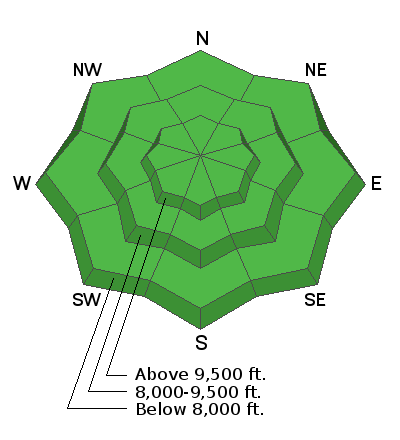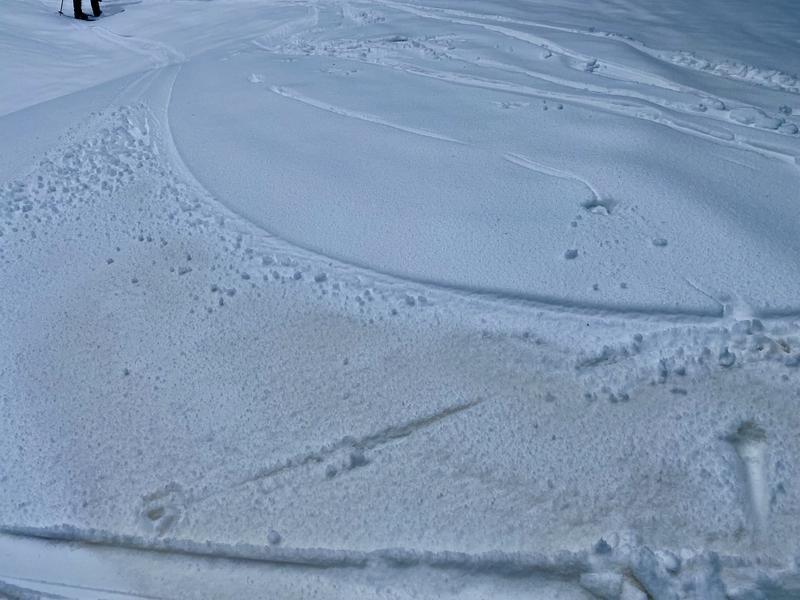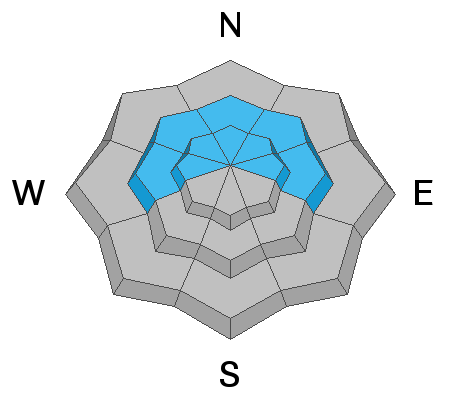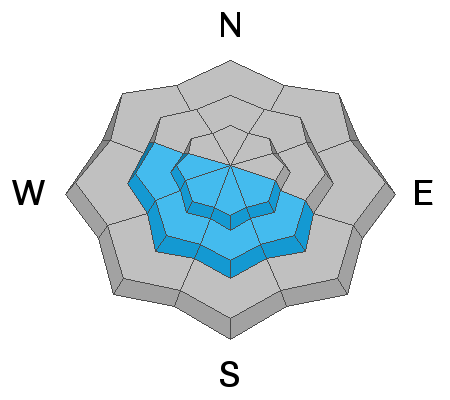We'd like to thank our incredible community for your support of the 2022 Spring Campaign. We raised $75,000 in two weeks to help grow our avalanche forecasting program. Thank You!
This morning, air temperatures range from 14 to 25 degrees F, and winds are blowing 7-9 mph gusting to 20 mph from the west-northwest. Light snowfall yesterday was pretty to see but only accumulated a trace of new snow.
Today, skies will be clear and sunny. Air temperatures should remain cool and climb into the mid to upper 20s F at higher elevations. At trailhead elevations temperatures should be near 40 degrees F. However, the strong April sunshine should make it feel quite warm. Winds should die down this morning and remain light today.
Looking ahead, some clouds should come back tomorrow with a few disturbances that could deliver a few snowflakes. A better chance for snow arrives Tuesday with maybe 6 inches of snow followed by warm, dry weather the rest of the week.
Snow conditions: Tuesday's snow was a welcome sight but it warmed quickly and should have an ice crust on top of it in most places except due north-facing slopes at upper elevations. There appears to be some dust within the new snow that local avalanche professional Bill Nalli found yesterday
throughout Big Cottonwood Canyon (photo below).
No avalanches were reported yesterday; however, many wet avalanches occurred during last weekend's dramatic warm-up. Some avalanches occurred in the new snow late Tuesday.
See reports of all avalanche activity
HERE










